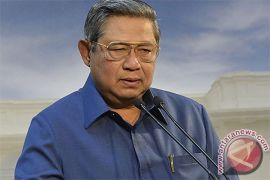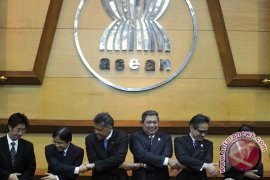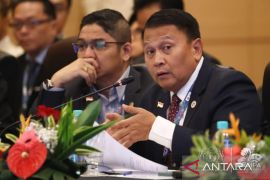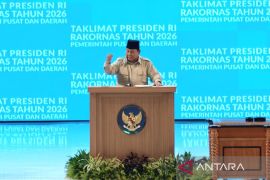"Local and legal measures must be taken to uplift women and tackle gender issues."Senggigi, West Nusa Tenggara (ANTARA News) - As many as 1.3 billion people, including women, are living in absolute poverty, said Marzuki Ali, the President of ASEAN Inter-Parliamentary Assembly (AIPA), here on Monday at the opening ceremony of Women Parliamentarians of AIPA (WAIPA) Meeting.
Marzuki, who is also the House of Representatives Speaker, pointed out that the lack of women`s participation in political and educational sectors was one of the main reasons why there were so many poor women in the country.
"About 1.3 billion people live in absolute poverty, and some of them are women. I hope all women parliamentarians can be more productive and share their experience among us so these obstacles can be removed," he stated.
Marzuki added that women in Southeast Asia faced many complicated issues and dealt with a lot of injustices, so a comprehensive approach was necessary to solve such problems.
"The issue not only needs parliamentary action, but also other forms of support such as gender mainstreaming efforts," he noted.
"Local and legal measures must be taken to uplift women and tackle gender issues," Marzuki said.
"Through this meeting, I hope we can come up with strategic and useful steps to empower women in all sectors," he added.
The presence of women parliamentarians at the meeting was necessary because the main objective of the meeting was to support and evaluate several programmes that focused on the problems facing women in Southeast Asian region.
The 33rd General Assembly of WAIPA Meeting is being attended by delegations of woman parliamentarians from 10 ASEAN member states.
The meeting will have three main topics on its agenda: Supporting the ASEAN Member States in Strengthening Their Collaboration in Implementing the MDGs Roadmap to Narrow Development Gaps Within and Among ASEAN Member States; The Role of Women Parliamentarians in Enhancing Pro-Women Policies in the Fields of Economics, Health and Education; and Enhancing Capacity Building and Specific and Relevant Skills Training for Women in the Rural Areas.
(Uu.F013/KR-BSR/F001)
Editor: Priyambodo RH
Copyright © ANTARA 2012








